Vegan French Toast
Published: October 22, 2020
Modified: December 5, 2024
This vegan French toast has the perfect soft, custard-like center and crispy fried outside with plenty of eggy cinnamon and vanilla flavor! It's incredibly easy to make, and it tastes just like the French toast you enjoyed as a kid. Perfect for lazy weekends and holiday brunches for a crowd.

On lazy weekends, I'm a huge fan of sweet and indulgent brunches. Along with pancakes, cinnamon rolls, and blueberry muffins, this French toast is one of those recipes that I make regularly when I'm craving a sweet breakfast.
If you're looking for a holiday brunch that the whole family will love, this French toast won't disappoint! Plus, it's incredibly easy to make.
I set out to develop this recipe after trying some others that didn't quite replicate the texture and flavor I remembered from my favorite (pre-vegan) brunch spots. Some recipes used aquafaba as an egg replacer, and some used ground flax. Some created eggy flavor with black salt (kala namak) and some used nutritional yeast. After a lot of testing, I found that the best texture and flavor came from a combination of these four ingredients.
Ingredient Notes and Substitutions
What kind of bread should you use? What's aquafaba? If you have questions about the ingredients, look here first!

bread: When you're deciding which vegan bread to use in this recipe, the first thing you'll want to do is look for an unsliced or thick-sliced loaf. Anywhere from 1/2 inch (1.25 cm) to 1 inch (2.5 cm) thick is perfect, depending your preferences. Anything thinner than 1/2 inch might fall apart when you soak it in the custard.
If you prefer a softer center to your French toast, try a soft loaf like vegan challah or brioche. With these types of bread, you'll want to let it dry out a bit first so it doesn't get too soggy. You can also lightly toast the bread to remove some of the moisture. For a firmer French toast, try French bread, Italian bread, or another sturdy loaf.
non-dairy milk: You can use any milk you like here, including almond, oat, or soy. I used plain, unsweetened milk, but if you use a sweetened or vanilla variety, it will just add some extra sweetness to your French toast.
aquafaba: This is the liquid from a can of chickpeas. It acts as an egg replacer for texture in the custard.
vanilla extract: For the best flavor, I always recommend using pure vanilla extract, not an imitation variety. Imitation vanilla has just one flavor, while real vanilla is far more complex.
nutritional yeast: This adds a savory, eggy flavor to the custard.
all-purpose flour: This thickens the custard a bit. You could also use 1/2 tablespoon (7.5 mL) of cornstarch instead.
ground flaxseed: Both light or dark flaxseed are fine in this recipe. This thickens the custard and acts as an additional egg replacer to create the perfect texture.
ground cinnamon: For that classic cinnamon French toast flavor.
black salt: Also known as kala namak, this ingredient adds an eggy flavor to your custard. You may be able to find this in a local supermarket or south Asian grocery store. If you can't, you can also get it online. Or leave it out if you can't find it (or if the eggy flavor of this ingredient is too strong for your taste).
salt: Table salt, sea salt, or Himalayan pink salt are all okay in this recipe. The salt enhances the other flavors in the recipe.

Tips for the Best Vegan French Toast
How long should you soak your bread? For most bread, I recommend 3 to 4 minutes per side. This also makes cooking pretty easy, as you'll pan fry each piece of toast for 3 to 4 minutes, so you can flip your soaking bread right after you flip your cooking French toast. If you prefer French toast that's not soaked all the way through, then you can do a quick dip on each side or soak for 30 seconds to 1 minute per side. You may also need to adjust soaking time depending on how absorbent your bread is.
Cook with a combination of oil and vegan butter. You want to use vegan butter for flavor, but mixing it with oil will help the French toast fry more evenly without burning.
Adjust your cooking temperature if needed. Start by cooking one piece at a time to get the temperature right. If your toast is cooking or burning in less than 3 minutes per side, reduce the heat slightly. If it's taking longer than 4 minutes per side, you should increase the heat.
Use a large griddle to cook multiple pieces at once. If you just have a frying pan, you may need to cook one piece at a time, because you don't want to cook the pieces too close together.
What to Serve With Vegan French Toast
I love eating this French toast with some berries, powdered sugar, and maple syrup. A pat of vegan butter adds a bit of savory flavor to contrast the maple syrup's sweetness.
Other toppings to consider include creamy cashew cheese, vegan Nutella, nuts, nut butter, vegan whipped cream, or chocolate chips.

Storing and Reheating Leftovers
French toast is best when fresh, but if you have leftovers you can definitely keep them and reheat them! After your French toast has cooled, transfer it to an airtight container or zip-top bag and refrigerate for 3 to 4 days. To freeze, place your slices on a baking tray and place in the freezer for an hour. Then transfer to a freezer-safe bag or container and store in the freezer for up to 3 months.
My favorite way to reheat French toast is in the air fryer at 350°F (180°C) for 3 to 4 minutes, until heated through. You can also heat it in the oven at the same temperature for 10 to 15 minutes, or reheat it in a pan over medium-low heat for a few minutes per side.
More Amazing Vegan Brunch Recipes
If you're looking for more ideas to make your lazy mornings a little sweeter, try one of these recipes:
Vegan French Toast
Yield3 servings
Prep Time15 minutes
Cook Time15 minutes
Total Time30 minutes
Ingredients
- 4-6 slices of bread, cut about 1/2- to 1-inch thick
- 1 cup plain, unsweetened almond milk (or other non-dairy milk)
- 3 tbsp. aquafaba (liquid from a can of chickpeas)
- 1 tbsp. nutritional yeast
- 1 tbsp. all-purpose flour
- 1 tsp. ground flaxseed
- 1 tsp. ground cinnamon
- 1 tsp. vanilla extract
- 1/4 tsp. salt
- 1/4 tsp. black salt (kala namak) (optional)
- light oil spray for cooking (such as coconut oil)
- maple syrup, berries, or powdered sugar, for serving
Instructions
Pre-heat a large nonstick skillet or griddle on a stove over medium heat.
Prepare your custard mixture in a medium bowl: mix almond milk, aquafaba, nutritional yeast, flour, cinnamon, ground flax, vanilla, black salt, and salt. Set aside for 5 minutes to thicken.
![Vegan French toast custard, mixed, in a bowl.]()
Pour some of the custard onto a plate with raised edges, then place a slice of bread in the custard to soak. Make sure your plate is large enough to allow the bread to lay flat in the custard. You can use a larger plate or multiple plates to soak multiple pieces of bread simultaneously. Soak for 3 to 4 minutes (depending on how absorbent your bread is), then flip the bread and soak for another 3 to 4 minutes, adding more custard to the plate if necessary. After soaking, you can wipe excess custard off the surface of the bread.
![Vegan French toast slices soaking on a large rimmed plate.]()
Add a combination of vegan butter and oil to the pre-heated pan, and turn the pan to coat. Place your pre-soaked bread on the pan and cook until golden brown, about 3 to 4 minutes per side.
Serve French toast with your choice of fresh berries, powdered sugar, and maple syrup.
Notes & Hints
This recipe should make enough custard to soak 4-6 slices of bread. Your mileage will vary depending on how big the slices are.
Nutrition Data
Serving Size: 1/3 of recipe; Calories: 435; Fat: 6 g.; Saturated Fat: 3 g.; Cholesterol: 0 mg.; Sodium: 1207 mg.; Carbohydrates: 82 g.; Fiber: 23 g.; Sugar: 4 g.; Protein: 16 g.; Vitamin A: 30 mcg. RAE; Vitamin B12: 3 mcg.; Vitamin C: 0 mg.; Vitamin D: 2 mcg.; Calcium: 21 mg.; Iron: 0 mg.; Potassium: 48 mg.; Zinc: 0 mg.Note: This data should be used only as an estimate. Please see the nutrition section of my terms and conditions for more information on how this data is calculated.
Vegan recipes in your inbox
Join the community and get my newest and best yummy vegan recipes sent right to your email!

Share this:



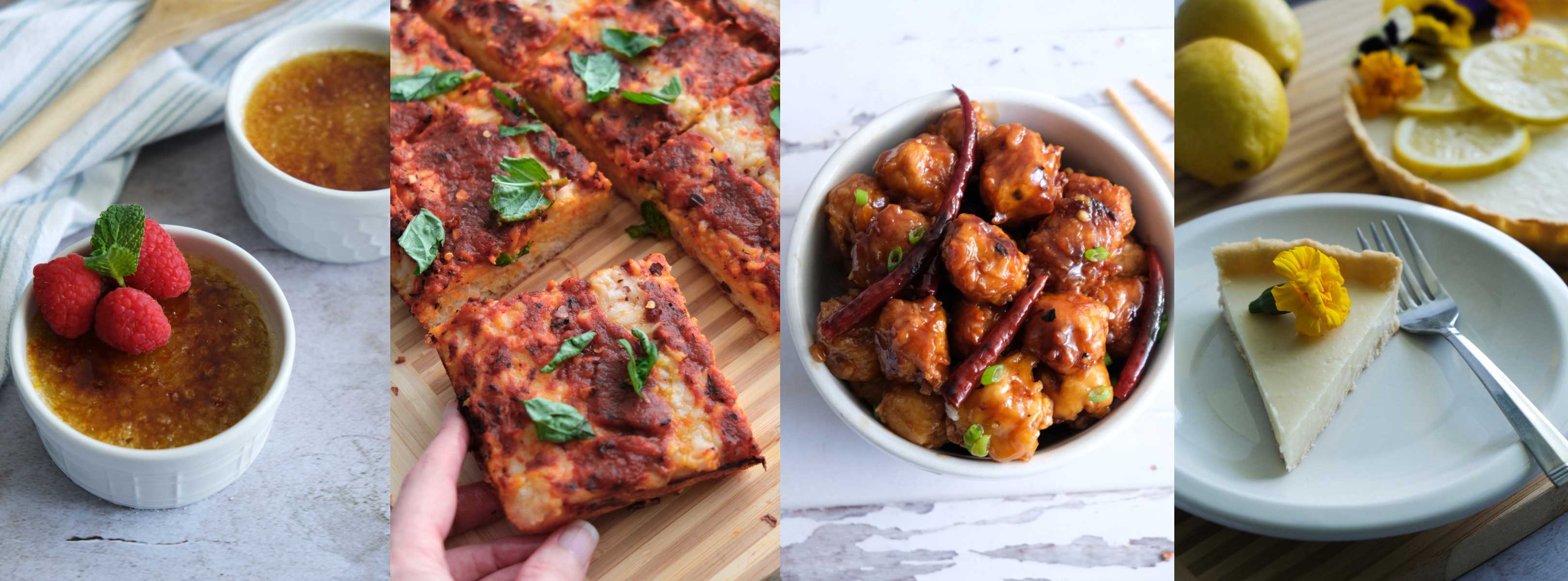
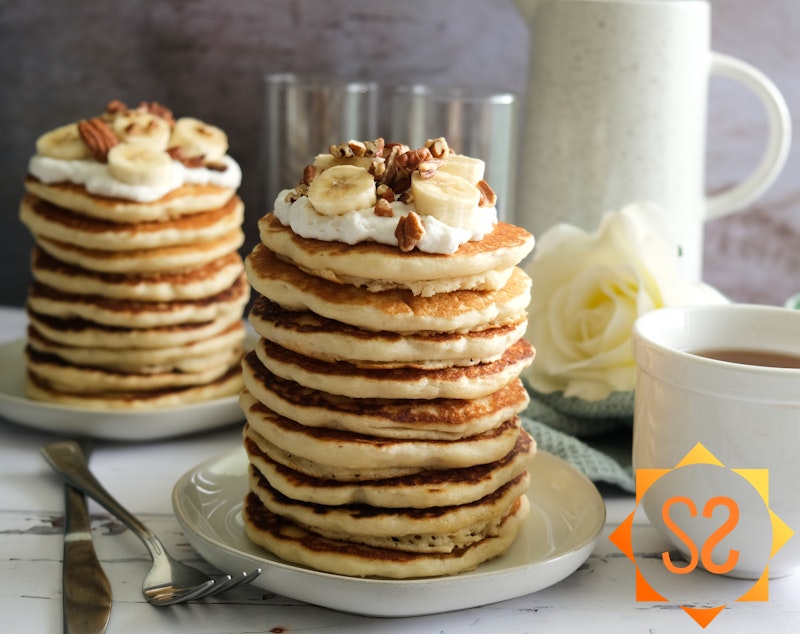

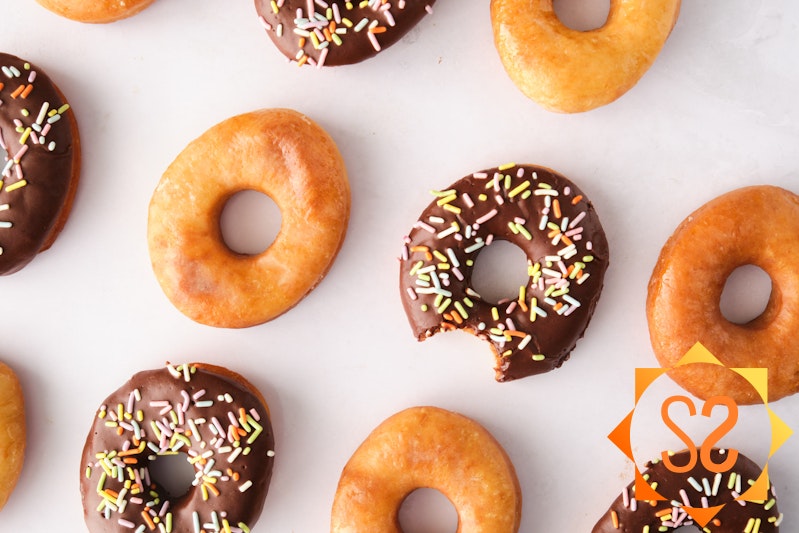
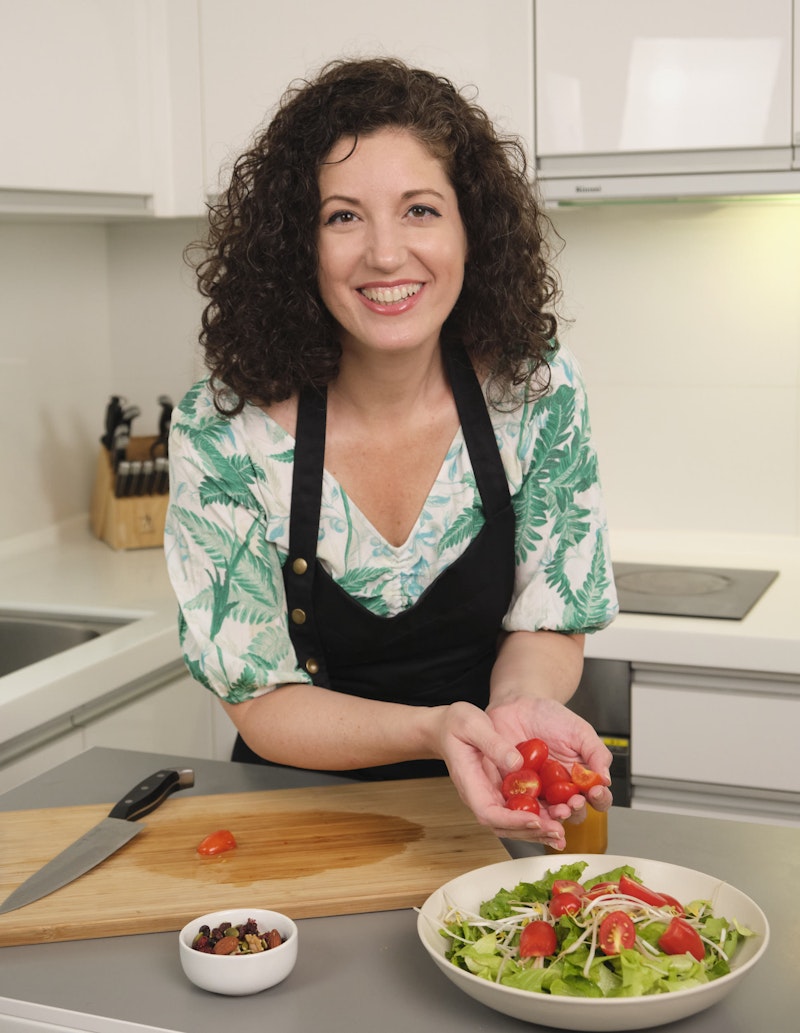


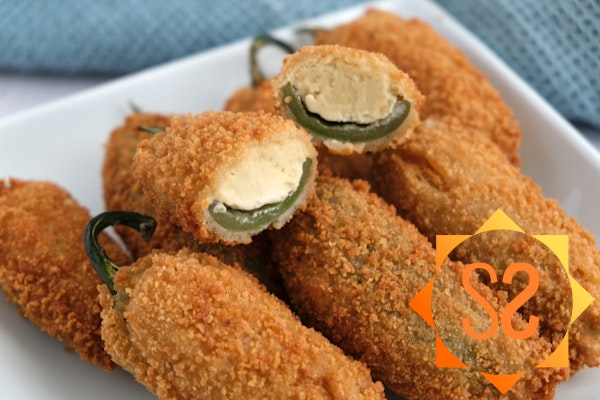


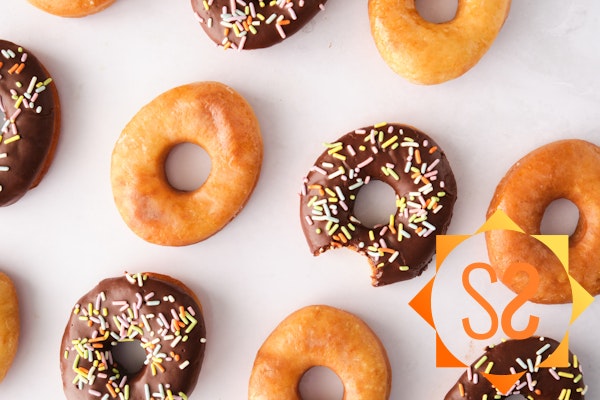
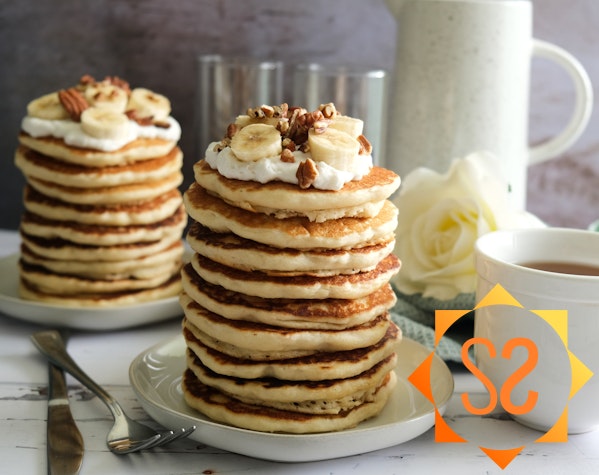
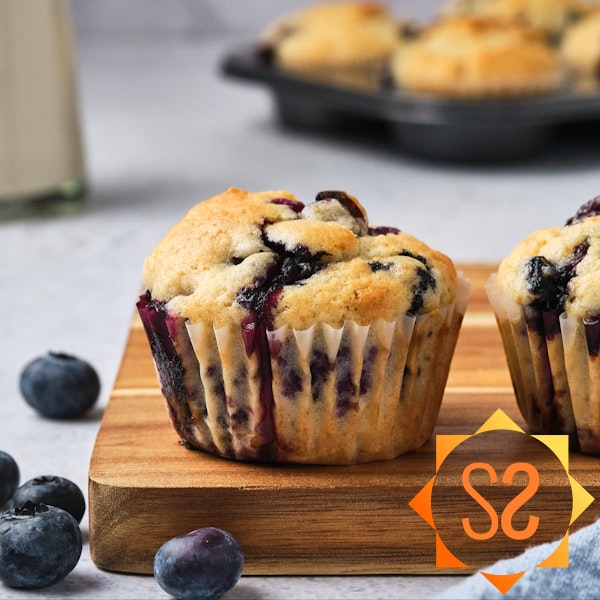
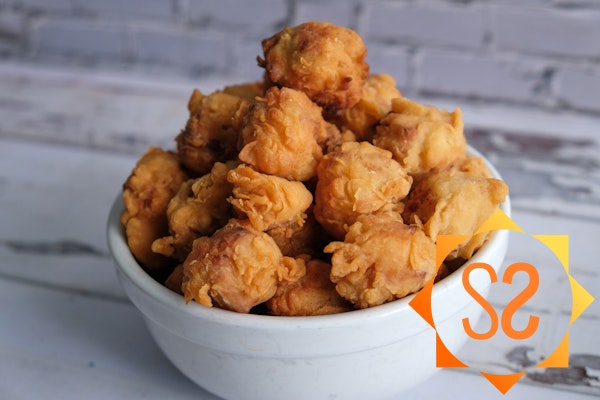

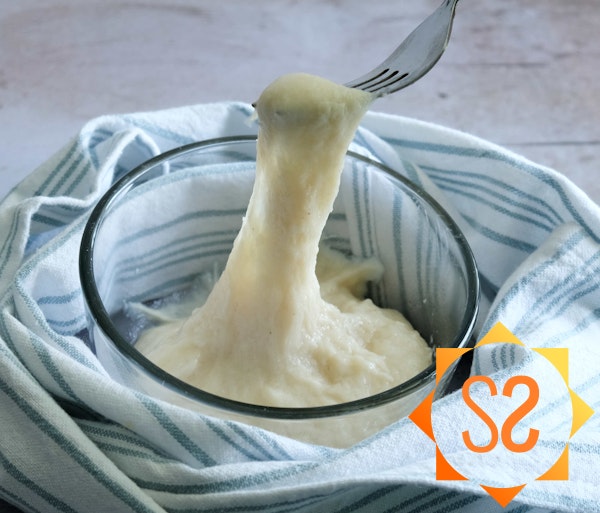

Leave a Comment
I love reading comments! I'll do my best to answer questions, too. If you made the recipe, please leave a star rating, it helps support the blog so I can make more recipes and articles. Thank you!
says